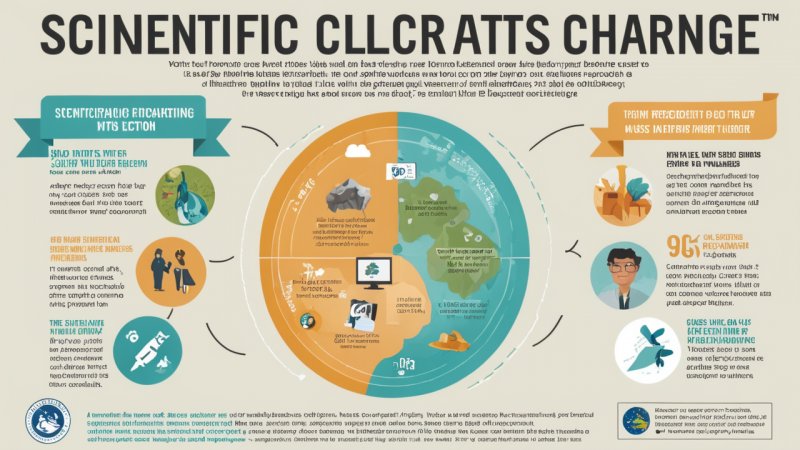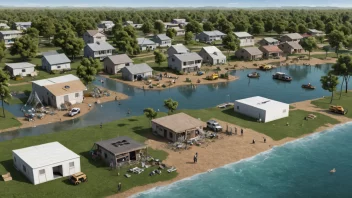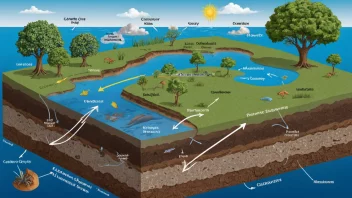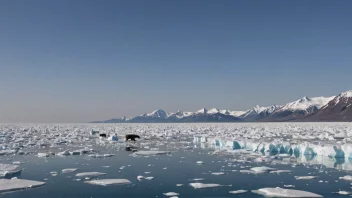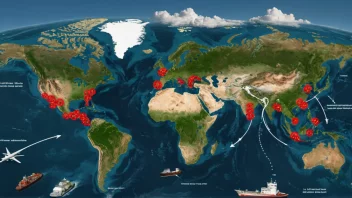Climate change is one of the most pressing challenges facing humanity today. As the planet warms, the impacts of climate change are becoming increasingly evident, from rising sea levels to extreme weather events. However, addressing this global crisis requires more than just technological innovations and policy changes; it necessitates a populace that is scientifically literate. Scientific literacy empowers individuals to understand and engage with the complexities of climate science, enabling them to make informed decisions and advocate for effective solutions. This article delves into the critical role of scientific literacy in combating climate change, exploring its definition, importance, and the strategies to enhance it.
Understanding Scientific Literacy
Scientific literacy refers to the ability to understand, evaluate, and apply scientific information in everyday life. It encompasses a range of skills, including critical thinking, problem-solving, and the ability to communicate scientific concepts effectively. A scientifically literate individual can comprehend scientific articles, interpret data, and distinguish between credible sources and misinformation. In the context of climate change, scientific literacy is crucial for understanding the causes and consequences of global warming, as well as the potential solutions available.
The Components of Scientific Literacy
- Knowledge of Scientific Concepts: This includes an understanding of basic principles of climate science, such as the greenhouse effect, carbon cycles, and the role of human activities in climate change.
- Critical Thinking Skills: The ability to analyze information, evaluate evidence, and draw conclusions based on scientific data is essential for making informed decisions about climate-related issues.
- Communication Skills: Effectively communicating scientific information to diverse audiences is vital for raising awareness and fostering public engagement in climate action.
- Awareness of the Scientific Process: Understanding how scientific research is conducted, including the importance of peer review and reproducibility, helps individuals assess the reliability of scientific claims.
The Importance of Scientific Literacy in Climate Change Mitigation
Scientific literacy plays a pivotal role in several aspects of climate change mitigation:
Informed Decision-Making
Individuals equipped with scientific literacy are better positioned to make informed decisions regarding their lifestyles, such as reducing energy consumption, supporting sustainable practices, and advocating for policies that address climate change. For example, understanding the impact of fossil fuels on greenhouse gas emissions can motivate individuals to seek alternative energy sources.
Public Engagement and Advocacy
Scientific literacy fosters public engagement in climate action. When individuals understand the science behind climate change, they are more likely to participate in discussions, campaigns, and initiatives aimed at addressing the crisis. This engagement can lead to grassroots movements that pressure governments and corporations to take meaningful action.
Combating Misinformation
In the age of information, misinformation about climate change is rampant. Scientific literacy equips individuals with the tools to critically evaluate claims and discern credible information from falsehoods. This is particularly important in combating climate denial and fostering a more informed public discourse.
Strategies to Enhance Scientific Literacy
Improving scientific literacy, particularly in the context of climate change, requires a multifaceted approach:
Education and Curriculum Development
Integrating climate science into educational curricula at all levels is essential. Schools should emphasize hands-on learning experiences, such as experiments and field studies, that engage students with real-world climate issues. Furthermore, teacher training programs should equip educators with the necessary tools and knowledge to effectively teach climate science.
Public Outreach and Community Programs
Community-based programs can play a significant role in enhancing scientific literacy. Workshops, seminars, and public lectures led by scientists can provide accessible information about climate change and its impacts. Collaborations between universities and local organizations can help bridge the gap between scientific research and community understanding.
Utilizing Technology and Media
In the digital age, technology can be a powerful ally in promoting scientific literacy. Social media campaigns, educational apps, and online courses can reach a broader audience and provide engaging content about climate science. Additionally, leveraging popular media to highlight scientific research can help demystify complex topics and make them more relatable to the general public.
Encouraging Critical Thinking
Fostering critical thinking skills is essential for scientific literacy. Educational initiatives should focus on teaching individuals how to evaluate sources, analyze data, and construct evidence-based arguments. Encouraging discussions around climate-related topics can also help individuals practice these skills in real-world contexts.
Case Studies: Successful Initiatives
Several initiatives around the world have successfully enhanced scientific literacy regarding climate change:
The Climate Reality Project
Founded by former Vice President Al Gore, The Climate Reality Project focuses on educating individuals about climate change and empowering them to take action. Through training programs, participants learn about the science of climate change and how to communicate it effectively to their communities.
NASA's Climate Change Education Program
NASA has developed a range of educational resources aimed at enhancing scientific literacy about climate change. Their interactive websites, educational videos, and classroom materials provide accessible information and engage students in climate science.
Local Community Initiatives
Many local organizations have launched initiatives to educate their communities about climate change. For example, community gardens that incorporate sustainable practices not only promote environmental stewardship but also serve as educational platforms for discussing climate issues.
Conclusion
In summary, scientific literacy is a crucial component in the fight against climate change. It empowers individuals to make informed decisions, engage in public discourse, and combat misinformation. By enhancing scientific literacy through education, community outreach, and the use of technology, we can foster a more informed populace capable of addressing the challenges posed by climate change. As we move forward, it is essential to prioritize scientific literacy as a fundamental tool in our collective efforts to create a sustainable future.
